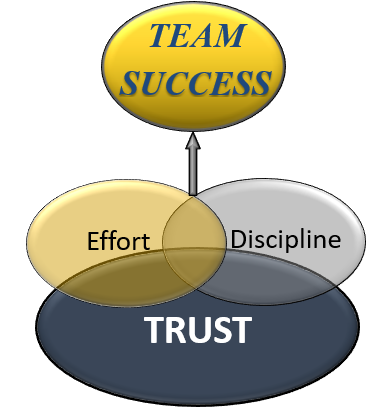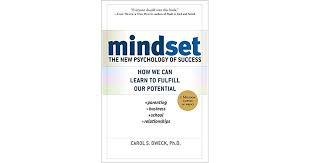By Jason Shea M.S., PICP IV, CSCS
What is a Winning Team Culture?
How do you build a winning sports team culture? Have you ever wondered why some team-oriented high school sports programs are so successful year after year? Over the past 17 years, we have had the tremendous privilege of working with numerous public and private school state title teams from various sports. Some of these teams have won several titles or consistently finished at the top of their division or state year after year. Their success carries through graduating class after graduating class. These teams have what can be referred to as a Winning Culture.
This begs the question: What is the culture of sports? Is football team culture different from hockey, wrestling, soccer, and lacrosse team culture? What is it that these teams are doing that their counterparts are not? The next step was obvious. Reach out to these local coaches and ask them. Thus, the premise of our book project, Building A Winning Culture in Sports!

After interviewing many of the most successful coaches here in Massachusetts, it was time to take this interview process nationally. From Texas football coaches and Minnesota hockey coaches to Pennsylvania and Iowa Wrestling coaches to California Volleyball coaches, it has been an incredible honor to have some of the top high school coaches in the country enthusiastically agree to participate in this powerful project. With over 500 state titles, 30 national championships, and a continued formula for success in shaping the young men and women of tomorrow, these coaches and their programs exemplify winning cultures.
How does culture influence sport and vice versa?
Along with the inspirational story told about each school’s culture, we analyzed the info from the interviews and were able to find commonalities across this broad spectrum of successful sports programs. These commonalities were then compared to successful business, military, SWAT, and other organizational models that we included in our interviews. The intention was to show how the lessons we learn and attitude/culture we develop playing youth and high school sports transcends the athletic field and serves as a foundation for which many successful businesses and organizations have been built upon.
How to build a championship culture: 150+ hours of interviews with incredible coaches, including:
Football:
- Coach Gary Joseph of 7X Texas Football State Champion Katy High School
- Coach John Mckissick of 12X South Carolina Football State Champion Summerville High School
- Coach George Quarles from 15X State Champion Marryville High School Football
- Coach Hal Wasson of 8X Texas Football State Champion Southlake Carroll High School
- Tom Landry Award Winner Coach Larry Hill of 3X Texas State Finalist Smithson Valley Football
- Coach Mike Grant of 10X Minnesota Football State Champion Eden Prarie High School
- Coach Mat Taylor of 8X Washington Football State Champion Skyline High School
- Coach Charlie Stevenson of 7X Massachusetts Football State Champion Xaverian Brothers High School
- Coach Hank Carter of 4 straight Texas Football State Championships Lake Travis High School
- Coach Cary Whittingham of 11X Utah State Champion Timpview Football
- Coach Steve Belles of 7X Arizona State Champion Hamilton High School Football
- Coach Jon Dibiaso from 10X state champion Everett High School Football
- Coach Cooper Henderson of 28X New Mexico State Champion Artesia High School Football
- Coach Brian Hermanson of national record 36 state football titles South Dakota State Champion Washington High School Football
- And more….
Wrestling
- Coach Greg Urbas of 11 X National Champion/29 X Ohio State Wrestling Champion St Edwards High School
- Coach Jeff Jordan of 17X Ohio State and current national champion St Paris Graham Wrestling
- Coach Russ Cozart of 34 consecutive years/452 match win streak/ 16 straight state title Brandon High School Wrestling
- All time winningest high school wrestling coach Scot Davis of Owatonna/Eden Prarie Wrestling
- Coach Rick Powell of 4 consecutive Pennsylvania State Dual Meet Champions Easton High School Wrestling
- Jim Jackson of 23X Minnesota State Champion/2X National Champion Apple Valley High School Wrestling
- Eric Muesser of back to back Pennsylvania State Champion and National top 10 Franklin Regional Wrestling
- Coach Rick Caldwell of 10 X Iowa State Wrestling Champion Waverly Shells High School
- Coach Scott Legacy of 27 consecutive state wrestling championship Mount Anthony High School
- Coach Carmine Colace from 9X state champion Franklin Wrestling
- Coach Barry Chooljian of 10X New England Champion/ 21X State New Hampshire State Champion Timberlane Wrestling
- And more….
Hockey
- Coach Trent Eigner of current National Champion/Minnesota State Champion Lakeville North Boys Hockey
- Coach Bruce Plante of 6 consecutive Minnesota Hockey State Finalist and Current # 4 National Ranking Hermantown
- Coach Bill Hansen from 17X state champion/6X national champion Catholic Memorial Hockey
- And more…
Volleyball
- Coach Bret Almazan-Cezar of current Girls Volleyball National Champion/ 11 time California State champion Archbishop Mitty
- Coach Jon Herman of 14X California State Volleyball Champions/4X National Champion Francis Parker High School
- Coach Tom Turco of 14X state volleyball champion Barnstable High School
- Coach Michelle Brazil of 5X California Volleyball State Champions Branson High School
- And more….
Lacrosse, Field Hockey, Soccer, Basketball and more..
- Coach Bob Shriver of Current National Champion Boys Latin Lacrosse
- All time winningest high school Lacrosse Coach Mike Massere of 15X New York Lacrosse State Champion West Gene
- All time winningest high school Soccer Coach Terry Michler of 9X Missouri State Champion Christian Brothers College High School
- Coach Jeff Bramiere of 10X Connecticut Lacrosse State Champion Darien Lacrosse
- Coach Bob Aronson from 6X state champion Medfield Lacrosse
- Coach Greg Kolodziey from 17X state champion Ludlow Boys Soccer
- 4X National Coach of the Year Miller Bugliari of 20 X New Jersey State Champion Pingry School Soccer
- Coach Marianne Murphy from 11X state champion Walpole Girls Field Hockey
- Coach Jim Mulvey of 18X State Champion Portsmouth Boys Basketball
- A Retired U.S. Military Colonel
- Two Multi-Billion-dollar company executives and other business and organizational leaders
- A SWAT Commander
- A Navy Seal BUDS/SWIC candidate
- A West Point Grad/Football Player
- Nationally ranked/national champion individual athletes from hockey, soccer, volleyball, wrestling, tennis, and more.
Through the culture-building and leadership lessons learned in these interviews, combined with the tremendous privilege of working with towns, teams, athletes, military and law enforcement groups, business CEO’s, and coaches for the past 16 years at APECS, we were able to find the some of the common characteristics of what it takes to Build a Winning Culture:
The Venn Diagram of Team Success

What is the culture of the team?
Below is the Sample Team Questionnaire we use

Below is a sample Coach Questionnaire we use

What are the team’s core values?
In the above Venn Diagram of Team Success, the foundation is built upon trust. Along with this foundation of trust, effort and discipline must be emphasized. An athlete or team can put forth great effort, but if they don’t have the discipline to do it day in and day out, it may not make a difference. The same goes for discipline; if an athlete or team has great discipline, showing up for every practice, meeting, etc, but doesn’t put forth any effort, it too may not make a difference.
Trust and how to bring a team together in sports

Trust comes in many forms in the athletic team environment.
Athlete’s Trust in the Coach: Running Through Walls
Will the athletes run through walls for you and your coaching staff? The first and potentially most important is the trust the players have in the coaching staff. In order to succeed, the coaching staff asks for/requires effort and discipline from the players; in return for the coaching staff’s request for effort and discipline, the players need to know that they can trust that the coaches are putting in equal if not more time and effort toward the improvement of the team. In this negotiation, on a conscious or subconscious level, why would an athlete want to put forth 100% effort or sacrifice their social, family, or school duties for someone they do not trust? If the athlete does not trust the coach, the athlete may consciously or subconsciously hold back true effort and discipline, which are the hallmarks of most successful teams.
Athlete’s Trust in Each Other
A common theme taught in law enforcement, military, and firefighting is having your brothers/sisters back and trusting that he/she has yours. Coaches who employ this mantra often have teams that govern themselves with little to no entitlement, infighting or disciplinary issues. All foundational trademarks of successful cultures. This increases effort and solidifies discipline both on and off the field. Off field choices are made with the mindset of “not letting your teammates down” rather than “will this satisfy MY immediate needs or desires”.
In the successful team and athlete culture, when the teammate next to you is pushing themselves in practice or during off-season workouts, there is a sense of obligation not to let your teammates down. You can see the effort they are putting in, therefore, feel a responsibility to them to put forth the same or greater effort. Once it becomes greater than social duty or obligation and rather a true desire to have your teammate’s back, positive things begin to happen!
“Do you got my back!”
The Boys Latin Lacrosse team has been a national powerhouse in Lacrosse for years, winning National titles and consistently finishing in the top 10 in the polls for years. Watch the first 37 seconds of this video to see their incredibly inspiring pre-game chant: https://www.youtube.com/watch?v=N_8Tldze–E
Parents Trust in Coaches
Here is the subconscious negotiation and agreement that goes on between coach and parent:
Coach: “Mr. Smith, thank you for encouraging Jonny to play. In exchange for the effort we require of him during games, practices, film sessions, and off-season workouts as well as discipline in the form of time, family, school, and social sacrifices, you can trust in us to put the same time and effort into molding him as a student, athlete, teammate, and overall representative of our community. We will teach him many lifetime intangibles including hard work, trust, discipline, and the ability to work with others.”
If the parents do not trust the coach or his actions, they may begin to question his decisions. After games and practices this distrust can creep into dinner table conversations these parents have with their children, potentially fostering mistrust on the athlete’s part with regards to their perception of the coach.
Coach’s Trust in the Athletes
There are 4 seconds left on the clock. Your team is down. The play is called, and your team is going for the win. Do you trust in the character of each athlete on the field to have the discipline and put forth the effort and sacrifice required for the greater good of the team?
Blind Spots
Do you know if your athletes trust you or your staff? Will your athletes “run through walls” if you ask them to? Do you know if the athletes trust each other? Do you know if the parents trust the coaching staff? In some cases, assuming trust can be a glaring oversight. What is that saying, “When you assume you make an ass out of u and me!” There is a difference between commanding trust/respect and demanding it. At the high school level, those coaches who employ methods to command trust and respect can get more out of their athletes.
Being honest about our blind spots:

Goal-Setting
Who sets the goals for the team?
The answer to this question can give great insight into whose team it is: is it the kids team or the coaches team? The goals athletes are often most accountable to are those that they wholeheartedly believe in and have expressed either verbally or written for others to see/and or hear.
This brings up a valid point with regards to coaching mindset: Whose team is it? The athletes or the coaches?
Highly Successful Growth Mindset High School Coaches Answers:
“It is their team. The kids set the goals for the team each year.” “When my mindset went from my team, to our team, to their team, is when our program became truly successful”
-Head Coach Charlie Stevenson of 8X State Champion Xaverian Brothers Football Team
This can allow for the one-two punch of athlete ownership in the team and trust in the coaching staff. This mindset can cultivate a trusting environment in which athletes are inspired to give that little extra effort and completely commit to the duties of the team. In other words they are “bought in” and willing to run through walls for the coaching staff and each other.
If the athletes don’t take part in the goal setting, this may leave the door open for a diminished sense of ownership. The athletes may consciously or subconsciously refrain their effort and/or discipline.
“Winning means you’re willing to go longer, work harder and give More than anyone else“
-Vince Lombardi
Growth Mindset Goals vs fixed mindset goals

Sample Fixed Mindset Goals for Team X:
- Beat rival team “” High School
- Win League Title
- Win first State Championship in 20 years
Is Team X a failure if it loses to rival “”? Is the team and season a failure if they don’t win the league title? Will these athletes consider themselves failures if they don’t win the State Championship?
These are all examples of fixed mindset goals. If we don’t achieve X, Y, or Z then we are losers or failures? This allows us to blame our family for the genetics that didn’t allow us to run faster and jump higher. We can blame our teammates for their lack of football skills and knowledge. We can blame our coaches for their lackluster coaching. We can blame our school and community for not giving us better support by providing us with better jerseys or facilities. This allows us to avoid blaming ourselves for these failures.
Perhaps the first and most important question this team can ask themselves is: DID WE PUT THE WORK IN THAT IS NECESSARY TO SUCCEED?
The second question to ask themselves: WHAT DO WE HAVE CONTROL OVER?
Going back to the Venn Diagram of Team Success, we find the answer: EFFORT.
On any team in any sport we can not 100% control the outcome of a game. Our opponent may get a lucky bounce. The ref may miss a call. The field conditions may affect a play.
Growth Mindset
What we can control is our effort level. We can control our effort level and commitment through the entire off-season. We can control our effort level and commitment through pre-season. We can control our effort level during season. We can control our effort level at every practice. We can control our effort level with all the extra work we do to get better both on and off the field. We can control our effort level in school, in our community, in our family environment, and on the field. Each and every play in practice and on the field, we have complete control over our effort level.
Growth Mindset Goal Examples
- I will not be afraid to try!
- I will keep working at it until I figure it out.
- I will focus on effort and keep trying.
- I will stay disciplined and spend time every day practicing/trying to improve.
- I will figure out a different way of doing things when I need to
- I will not be afraid to make mistakes. I will use these as learning tools.
- I will keep trying to get every sprint done in under X seconds.
- I will do an extra few sets of sled pushes after every practice
- I will try to pick my teammates up and lead by example when we are all tired
- I will not blame, complain, or make excuses.
- I will focus on working hard, being humble, and being respectful to my teammates, coaches, family, teachers, etc.
- I will follow and record every result of every workout in my strength and conditioning program template.
- I will strive to improve in some way during every workout each week.
- I will control my cravings for the extra bowl of ice cream before bed
- I will get to practice 15 minutes early and always be the last one to leave
- I will never break out of the huddle early
- I will always be the first to the line when we are sprinting.
- I will always give the coaches my full attention and respect while they are talking.
Culture Crushers
- BLAME
Blame is defined as “to hold responsible; find fault with; to place the responsibility for; an act of attributing fault.” In other words, “it is somebody else’s fault that….” When blame is allowed to rear its ugly head in any culture, things can start to fall apart rapidly.
BLAME vs ACCOUNTABLE/NON-BLAME
- It’s your Fault What could “WE” have done better?
- Creating Drama/Conflict Focusing on finding constructive solutions
- Criticize/Accuse Look for ways to improve
- Make Excuses/Complain Take Ownership/accountability/grateful mindset
In his excellent book called Beyond Blame, Dr. Carl Alasko teaches a 5-step guide to avoiding Blame and communicating effectively. Below is a summary:

“Step 1: Use positive accountability: acknowledge the error on your part or other’s. Express emotion or need without criticizing, snapping, or accusing (1).”
“Step 2: Maintain 4 to 1 ratio of rational thinking to emotion in communicating (1).”
“Step 3: Ask yourself the Question of Intention: What do I want to accomplish right now, in this moment, in this interaction? Also ask yourself what the other person’s intention was and why I am approaching them (1)?”
“Step 4: The Law of Personal Limitations: Understand that the person was doing the bestthey could with what they had at that time (1).”
“Step 5: Learn from mistakes in past communications. Recognize if you react to quickly to criticism or accusations etc. Make room for positive interaction (1).”
2. EXCUSES
Excuses are, in essence, an extension of blame. Assigning blame to a reason for failure to perform or complete a task. Excuses allow athletes to avoid ownership.
3. ENTITLEMENT (and complaining)
I deserve…. I have a right to…. That is mine. This is mine. I..me…mine… Entitled athletes often lack humility. Rather than utilizing a growth mindset and putting the emphasis on the work to earn something, there is a sense or feeling of deserving things without working for or earning them.
Entitled athletes on the field are often more concerned about their own stats rather than team wins and losses. They care more about how they look out on the field than how hard they work for their playing time. These athletes can be seen throwing temper tantrums and screaming fits at refs or opposing players when things don’t go their way. They can become masters of faking effort. They are the first to leave the huddle and last to show up at practice.
Entitled athletes will show up late. Entitled athletes will quit or make excuses when the going gets tough. Entitled athletes focus more on celebrating their achievements.
4. LAZINESS
In most cases, the hardest working athletes are the most-humble, least entitled, and often, most successful. There is something about hard work and earning on field successes that build humility. Knowing the effort it took to get there creates a sense of humility in these athletes.
Building a Winning Culture
Winning is a team sport
I had the great privilege of learning the following 3 culture building gems from an extraordinary and inspiring mentor, coach, international businessman, and friend. His story can be found in the H.E.A.R.T chapter of Building Winning Culture in High School Sports….and Beyond!
1. Candor and Openness
- Create an environment of Candor and Openness under the umbrella of respect.
- Coaches will be candid with athletes in their constructive feedback. Athletes will be open to this feedback understanding it is constructive.
- Coaches will be candid with the athlete’s parents when questions arise. Parents will be open and understanding of this constructive feedback.
- When asked, athletes will be candid with coaches in their constructive feedback. Unsolicited injecting of opinions is not allowed. Coaches will be open to this feedback and understand it is meant to be constructive.
- When asked, parents will be candid with coaches in their constructive feedback. Unsolicited injecting of opinions is not allowed. Coaches will be open to this feedback and understand it is meant to be constructive.
- Perform Openness and Candor Drill
- Openness for the Coach. Under the umbrella of respect, the Coach stands in front of his/her coaching staff and allows them to be candid with him regarding constructive criticisms of his/her leadership, coaching, etc.
- Candor for the Coach. Under the umbrella of respect, the Coach can then be candid with the coaching staff regarding constructive criticisms.
- This drill can also be used between the players and coaching staff during a scheduled team meeting in which there is solicitation of feedback. Unsolicited injecting of player opinions is not acceptable.
- Coaches can also perform this drill with parents during a scheduled meeting in which feedback is solicited.
2. H.E.A.R.T.
Humility Enthusiasm Ambition Respect Trust
3. The ARROW

Think of any team, group, or organization as an arrow.
5-15% of the arrow is the tip. These are the leaders, the captains, the hardest workers, the go-getters, etc. This group is self-motivated with great levels of discipline and effort. Coaches, bosses, teammates, and co-workers have full trust in them. The tip of the arrow-ers are accountable. They do not complain, blame, or make excuses. They do not have a sense of entitlement, rather preferring to earn their successes.
5-15% is the back of the arrow. These are the opposite of the tip of the arrow group. These are the complainers, the blamers, the excuse makers, etc. These individuals bring a negative me-first attitude to the team environment. There is a lack of discipline and work-ethic/effort. They feel a sense of entitlement.
70-90% is the middle of the arrow. This is everybody else in the team, group, or organization. This is where culture exists, when the boss, leader, or coach are not around. With a very strong tip of the arrow group and a weak back of the arrow group, this group will be a feeder for the tip of the arrow group. They will strive to become better and gain trust from their peers, teammates, coaches, and bosses through hard work, discipline, and a team-first attitude. In essence, they work toward becoming the tip of the arrow-ers. This can lead to a successful winning culture.
With a strong and oftentimes loud, back of the arrow group, combined with a weaker tip of the arrow group, the middle of the arrow group can be pulled in the wrong direction. If complaining, blaming, excuses making, and me-first entitlement are allowed to run rampant, the culture can become toxic.
“Build it and they will come”
To borrow the famous line from the movie Field of Dreams, “Build it and they will come.” This applies to building a winning team culture as well. By focusing on a team oriented approach, athletes want to be a part of the program. Parents want their kids to play for the program. The community and school want to help out and be a part of the program any way they can.
Wouldn’t it be great to have a winning team culture in which kids were lined up to play for you? Picture having an entire community turn out to watch your team’s games. Imagine how it would feel to know that your team is being led by a strong group of tip of the arrow leaders where effort, discipline, humility, and trust are the hallmarks.
Well, it’s time to put these strategies to the test and start building that winning team culture you and your team have always wanted!
For more on Building a Winning Culture in Team Sports stay tuned for Part 2 of this series. There we will cover strategies for building teamwork, trust, work ethic, and and iron will, as well as a few inspirational stories. For much more feel free to pick up a copy of our 542 page book Building a Winning Culture in High School Sports…and Beyond or inquire about our Building a Winning Culture on-site seminars at info@9dfit.com.

Thx for reading!
References
- Alasko, C. Beyond Blame: Freeing Yourself from the Most Toxic Form of Emotional Bullsh*t. TarcherPerigee. 2011.


